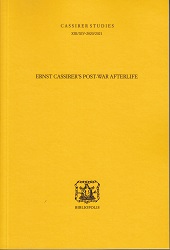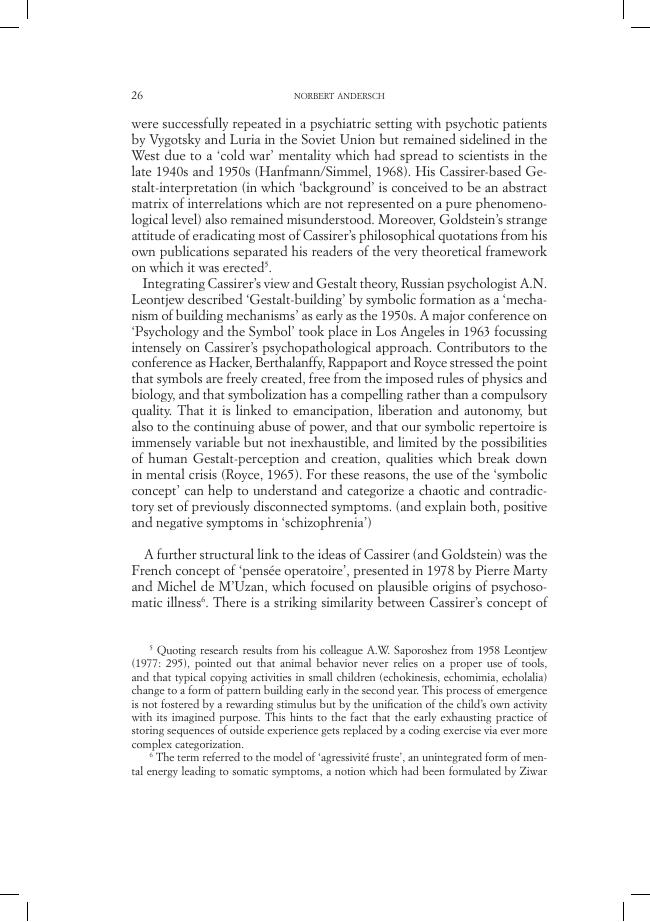2021 - Bibliopolis
Article
Digital Version
Download | Copy/paste | Printing (5)
Ernst Cassirer's afterlife : reinventing consciuosness as finctional matrix
P. 19-33
- As a brilliant philosopher but very modest man Ernst Cassirer never trained disciples, he did not create a ‘Cassirer-school', nor was he keen in having admiring ‘followers'. But for the Head (‘Rektor') of Hamburg University (1929/30) it was hard to be forced into exile in 1933. Saving his family from racist persecution, reinventing himself three times in three different countries (England, Sweden and the US), creating a livelihood, having to think and write in foreign languages proved challenging for a man close to his 60s. In these dangerous times Cassirer did not ask for help but generously supported others instead. Coming back from exile to the post-WWII European scientific discourse might have been difficult for him, but as we know: he never made it back in the first place. He died in 1945 in New York, from a heart attack, most likely caused by exhaustion. So in post-war Germany there were only few persons left trying to save Cassirer's legacy.
- Many more obedient followers of Hitler-fascism were unrepentant,untouched and still in power − happy to keep Cassirer's challenging philosophy out; especially Martin Heidegger (Cassirer's challenger in the1931 Davos dispute) who never renounced his fascist mindset. Cassirer's inventive ideas instead ‘took the long way home'. His philosophy exercised a hidden but consistent impact on thinkers and researchers in the second half of the 20th century. As a medical doctor I cannot judge Cassirer in the same terms as present philosophers do. Today's ongoing comparison of his writings to the works of Husserl, Wittgenstein, Merleau-Ponty for the umpteen's time has − sorry to say − never been too inspiring to me.What I found fascinating though, was to − finally − detect Ernst Cassirer's paradigm changing impact as a philosopher of consciousness. And this is the subject of my talk today. [Publisher's text]
Is part of
Cassirer studies : XIII/XIV, 2020/2021-
Information
DOI: 10.1400/286515
ISSN: 2038-6575
-
In this issue
- Ernst Cassirer's post-war afterlife
- Ernst Cassirer's afterlife : reinventing consciuosness as finctional matrix
- Cassirer, Heidegger and the cognitive cciences
- Cassirer in France : 1903-1948 : mapping Cassirer's influences and receptions
- Ernst Cassirer's influence on the philosophy of Wilfrid Sellar
- System or form : Cassirer and Ortega's debate on the nature of knowledge and history
- Normativity of symbolic forms as objective moral standards in culture
- Notes on recent rethinking of Cassirer's philosophy
- Not to give up anything of what is human : the History of problems [Problemgeschichte] and the Phenomenology of history in Hans Blumenberg and Ernst Cassirer
- Castoriadis, an unconscious follower of Cassirer?
- Differences in symbolic representation : Goodman's signification and Cassirer's Darstellung
- Metaphysical considerations of Cassirer's philosophy : an unexplored heritage
- Michel Foucault, lecteur de Cassirer
- Abstracts



